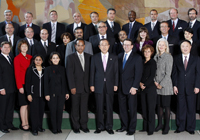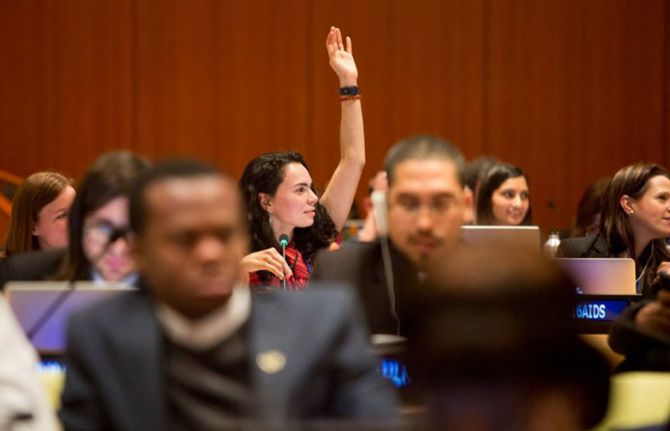
Feature Story
UN Secretary-General convenes pharmaceutical companies in New York
10 October 2008
10 October 2008 10 October 2008
United Nations Secretary-General together with senior officials from the United Nations system met with seventeen of the world’s research-based and generic pharmaceutical and diagnostic companies
On 9 October 2008, the United Nations Secretary-General together with senior officials from the United Nations system met with seventeen of the world’s research-based and generic pharmaceutical and diagnostic companies to review progress on strengthening efforts to expand access to HIV services in low- and middle-income countries.
This meeting was a follow-up to the last high-level dialogue between the UN and pharmaceutical and diagnostic companies in July 2006.
UNAIDS Executive Director Dr Peter Piot also participated in the event. During his wider remarks, he highlighted the achievements of the United Nations and the international community in their efforts to scale up access to HIV prevention, treatment, care and support.
The meeting took place immediately after the high level gathering on the Millennium Development Goals where Member States agreed to increase funding for research and development of essential drugs to treat AIDS and other diseases.
Although there has been an increase in the number of people receiving antiretroviral treatment in low-and-middle incomes (3 million people were on treatment by the end of 2007, up from 1.3 million in 2006), only one-third of those who need antiretroviral treatment in low-and middle-income countries are receiving it.
In recent years, there have been a number of achievements in relation to HIV treatment such as the development of fixed-dose combinations for first-line treatment, including pediatric formulations, price reductions for first-line and pediatric antiretrovirals as well as further investment and development of technologies for prevention and diagnosis of HIV and monitoring the efficacy of antiretroviral therapy in both adults and children.
The Secretary-General highlighted the need for greater collaboration between the private sector and the UN to expand existing efforts in the spirit of Goal 8 of the MDGs on building a global partnership for development. He noted that progress on all fronts is essential in order to reverse the AIDS epidemic.
Participants agreed to continue to hold periodic high-level meetings, under the leadership of UNAIDS, to take stock of progress and to identify new collaborative measures.
UN Secretary-General convenes pharmaceutical comp
Cosponsors:
Press centre:
Read statement by United Nations Secretary-General (New York, 9 October 2008)



